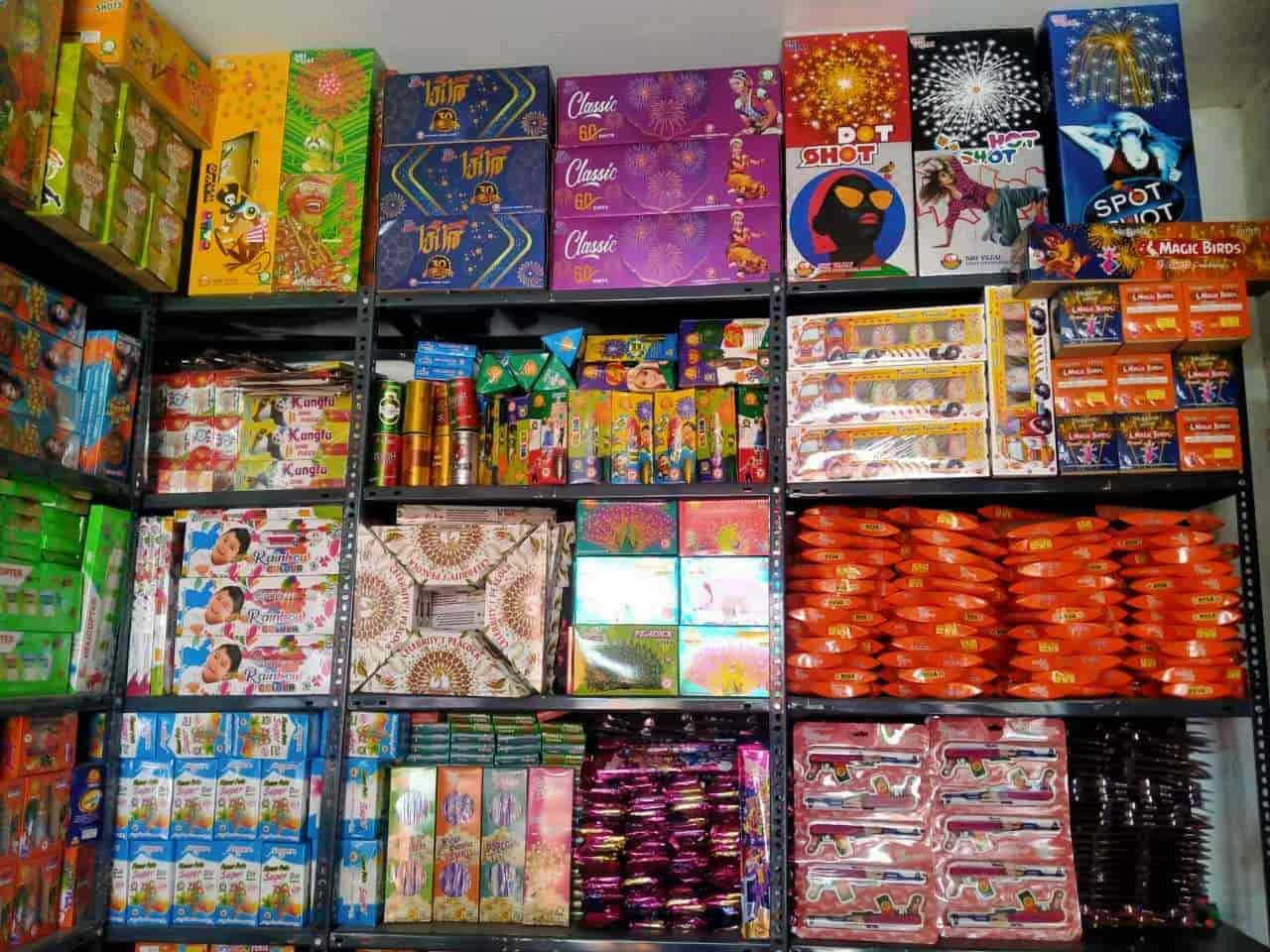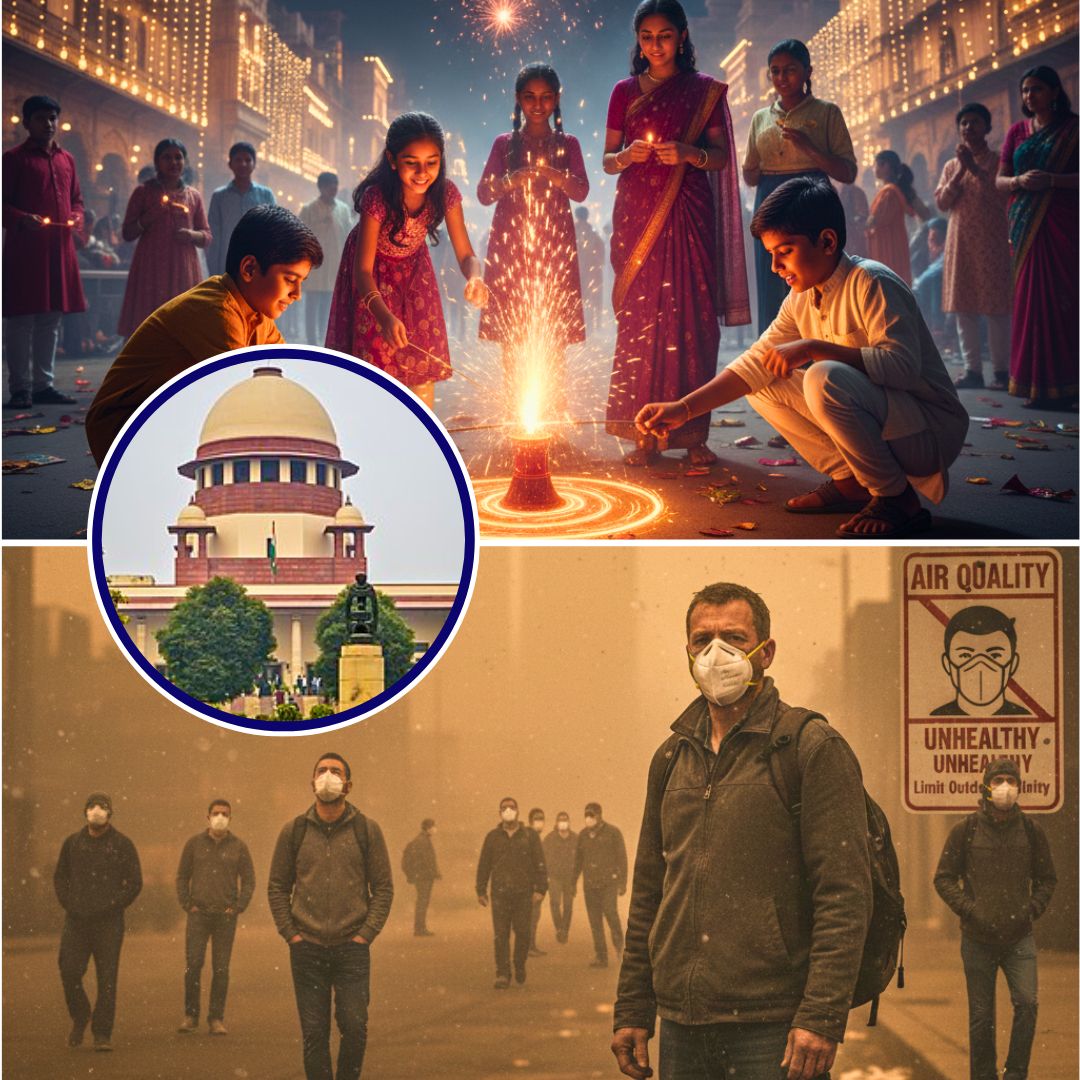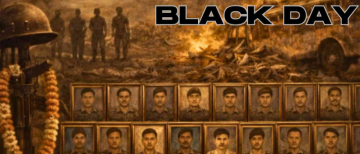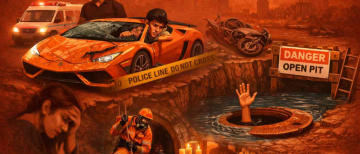Every autumn, as Diwali approaches, India finds itself engulfed in a familiar haze. The lights may symbolise triumph over darkness, but the smoke from firecrackers represents a much darker reality — suffocating air, spiking pollution levels, and overburdened hospitals. For nearly a decade now, the Supreme Court has wrestled with this combustible tradition, oscillating between restrictions, partial bans, and cautious allowances for “green crackers.” Its rulings reflect a genuine dilemma: is the ban on firecrackers a necessary step towards public health and environmental responsibility, or just another symbolic exercise in judicial hand-wringing?

A Ban That Refuses to Settle
The Court’s interventions have evolved with the seasons. In April this year, it imposed a sweeping year-round ban on firecrackers in Delhi-NCR, reasoning that a seasonal restriction had little bite when stockpiling and black-market sales flourished unchecked. By September, however, the Court questioned why Delhi alone should carry the burden of clean air when smog is hardly a parochial phenomenon. Shouldn’t Kanpur, Kolkata, or Chennai be entitled to breathe as freely as Delhi? And yet, in the very same month, the Court hesitated. A blanket ban, it warned, might only push the trade into the shadows, where profiteering mafias would thrive, much like Bihar’s mining industry. The compromise has been a grudging revalidation of “green crackers,” designed to pollute less but still pollute nonetheless. The result is a policy landscape as smoky as the night sky in Sivakasi, Tamil Nadu, where most of India’s firecrackers are produced.

Between Breath and Bread
The fundamental tension is as old as the debate itself: environment versus livelihoods. Clean air is not a privilege, it is a constitutional right. Yet the firecracker industry employs hundreds of thousands, many of them poorly paid workers whose entire existence depends on this seasonal economy. For them, each ban order translates into unemployment, hunger, or worse, an invitation to unregulated and unsafe underground manufacturing. The Court is right to insist that a society cannot breathe easier while another section starves. But it is equally right to remind us that no festival can justify condemning millions of children, asthmatics, and elderly citizens to wheeze through days of toxic air.

The Trouble With Enforcement
The greater problem lies not in the ban itself but in its implementation. Firecrackers banned on paper still explode in neighbourhoods across the country, smuggled across porous state borders or sold under the guise of “green” alternatives. The QR code system meant to certify genuine green crackers has already been corrupted by counterfeit sales. The National Green Tribunal and the Commission for Air Quality Management may issue stern orders, but without local enforcement and citizen cooperation, such rulings become little more than paperwork.
There is a danger that the firecracker ban becomes yet another performance of judicial concern; headline-worthy, well-intentioned, but toothless in practice. Unless the state builds a coherent, nationwide framework, with strict quality checks, economic alternatives for workers, and transparent monitoring, the ban risks becoming a ritualistic mastication, endlessly chewed over every festive season with little to show for it.

What India needs is not a cycle of bans and reversals but a holistic policy. This would mean:
- A uniform national framework, rather than patchwork regional prohibitions.
- Economic transition plans for Sivakasi and other hubs, with re-skilling, subsidies, and alternative livelihoods.
- Investment in awareness campaigns that make reduced firecracker use a matter of social pride, not judicial compulsion.
- Stronger enforcement through digital tracking and inter-state coordination, so that the black market is choked before it chokes us.

So, is the firecracker ban a smart move? On principle, yes. It is a recognition that public health cannot be bartered away at the altar of tradition. But in execution, it risks being yet another half-measure, a noisy debate that fizzles into nothingness once the smog settles. The Supreme Court has lit the fuse on a national conversation. Whether India allows that spark to fade into smoke or uses it to illuminate a path towards cleaner air and fairer livelihoods is a choice that rests not only with judges, but with governments, industries, and citizens alike.
With inputs from agencies
Image Source: Multiple agencies
© Copyright 2025. All Rights Reserved. Powered by Vygr Media.


























